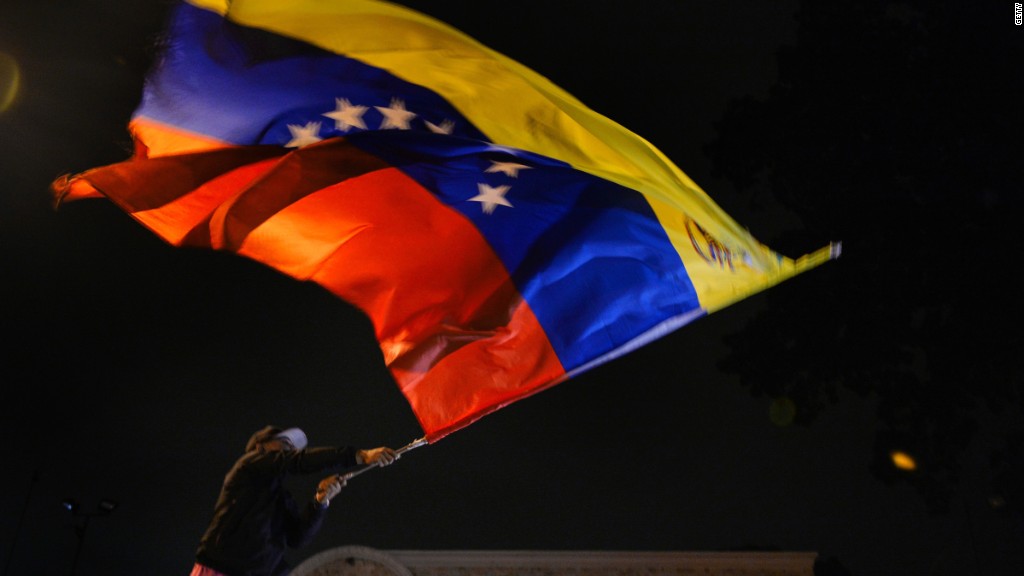
Venezuela just made it harder for its citizens to escape the country's cash crisis.
President Nicolas Maduro announced Monday night that he's closing the country's border with Colombia for 72 hours as Venezuelans rush to exchange bills before they become invalid later this week. He accused "mafias" of moving Venezuelan money into Colombia.
It's the latest twist in a crisis that symbolizes Venezuela's severe economic depression, which is having a brutal impact on its citizens' lives.
The Venezuelan government said in a statement that shutting the border with Colombia was necessary "to counteract the criminal attacks against our currency."
Some Venezuelans are going to border towns in Colombia to exchange their currency, the bolivar, for U.S. dollars or to spend their money -- while they still can -- in Colombia where food, toiletries and other basics are plentiful.
Related: Venezuela is replacing its biggest note with a coin
The biggest bill in Venezuela is the 100 bolivar note. On the official, government rate, it's worth about 15 U.S. cents. On the more popular, unofficial exchange rate, the 100 bolivar bill is worth a mere 2 cents. Venezuelans have been weighing stacks of cash to pay for basic items instead of counting individual bills.
To make life a little easier, Maduro's government announced it will start printing six new bills worth between 500 and 20,000 bolivars. Still, the biggest bill on the unofficial rate is still only worth $5.
On Sunday, Maduro's administration announced it will withdraw all 100 bolivar notes and replace them with coins of the same face value within 72 hours. The new bills and coins are expected to debut Thursday.
Maduro says his emergency decree to swap out the bolivar notes for coins on such short notice was aimed at "mafias" he says were smuggling bolivars outside Venezuela.
Swapping out the new bills for old ones within days has forced Venezuelans to deposit their bills at local banks or exchange them as quickly as possible so as to not have worthless paper by the end of the week. It's a sign of the times.
Related: Venezuela's currency is in 'free fall'
Venezuela is officially suffering through hyperinflation -- the rate of inflation has risen by 50% in the past 30 days, according to a report published Monday by Steve Hanke, an economics professor at John Hopkins University who is an authority on hyperinflation.
The International Monetary Fund forecasts that inflation in Venezuela next year will exceed 1600%.
Food shortages continue to devastate Venezuelans. While food has become more available in certain parts of the country because the government isn't enforcing price controls, it's often extremely expensive for Venezuelans to buy normal items.
Simon Rojas has suffered through Venezuela's economic crisis for years. A 25-year old recent college graduate in Caracas, the capital, Rojas says the government's new bills won't solve anything.
With the currency in free fall, Rojas is now trying to spend his 100 bolivar notes before the 72-hour deadline passes -- and before it loses more value.
"He's selling this decision as a solution, but it's never worked before," Rojas said of Maduro, noting other hyperinflation crises like Zimbabwe's. "I'm trying to spend bolivars, not save them. There isn't an incentive to save."


